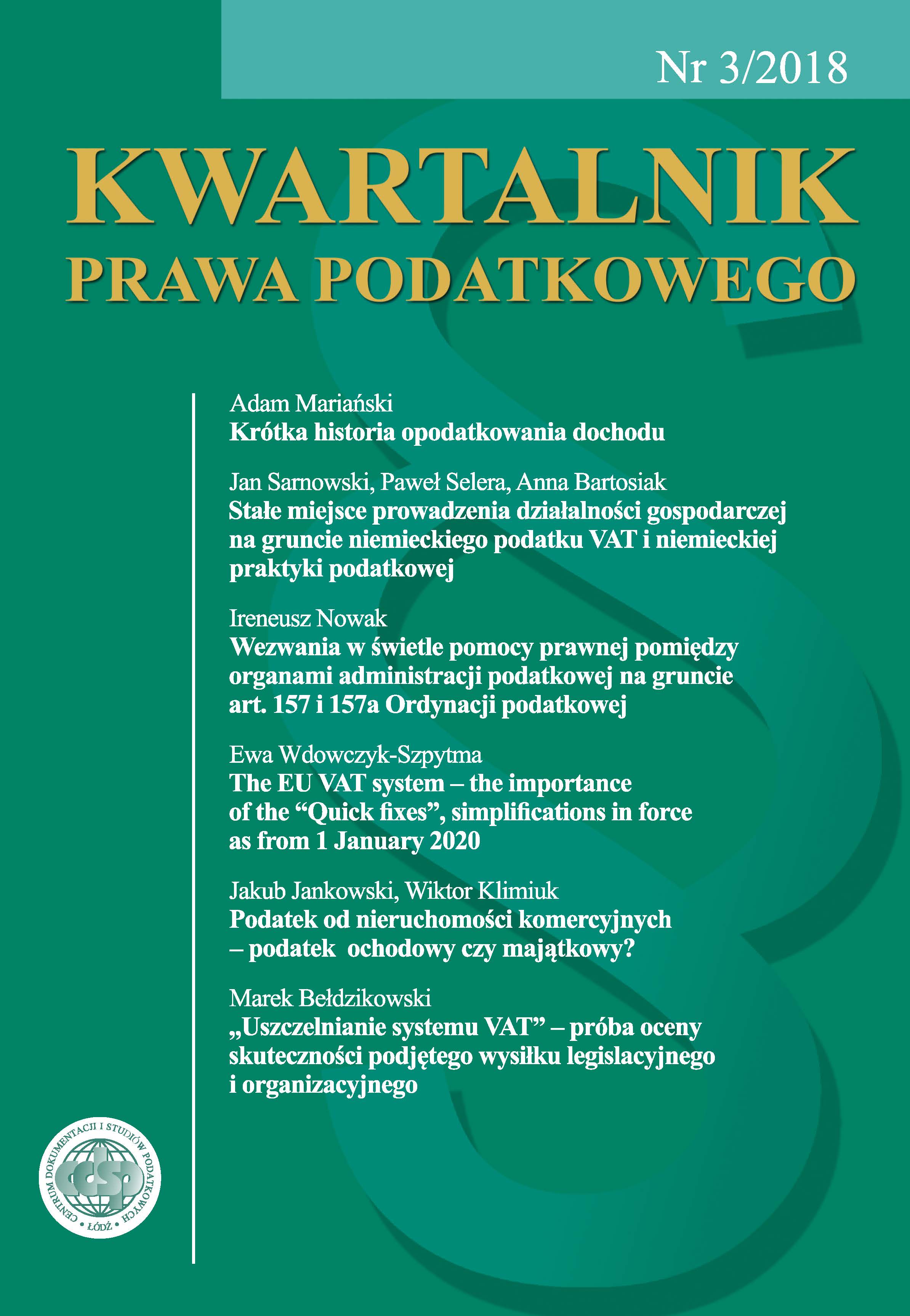Fixed place of establishment under German VAT and tax practice
DOI:
https://doi.org/10.18778/1509-877X.2018.03.02Keywords:
fixed establishment, sufficient degree of permanence, suitable structure in terms of human and technical resources, VATAbstract
The aim of the study was to analyze the concept of a fixed establishment in the German VAT Act and its interpretation by the German financial courts and tax authorities. The German financial courts, when assessing the criteria for accepting the existence of a fixed establishment, are rightly referring to Regulation No. 282/2011 and the case law of the CJEU. Nevertheless, in some cases, the judiciary allows for the existence of a fixed establishment in Germany even if the taxpayer uses someone else’s staff and does not even have any personnel facilities. In the opinion of the Authors, this is an interpretation that goes far beyond any justification, neither in EU law nor in the case law of the CJEU.
Downloads
References
Bartosiewicz A., Nowe unijne rozporządzenie wykonawcze VAT, „Przegląd Podatkowy” 2011, nr 7.
Google Scholar
Becker S., Warenlager als umsatzsteuerliche Betriebsstätte bzw. feste Niederlassung, DStR 2015.
Google Scholar
Gersch E.M., § 12 AO, [w:] Abgabenordnung (AO). Kommentar, Hrsg. F. Klein, München 2018.
Google Scholar
Grambeck H.M., UStG § 3a Ort der sonstigen Leistung, [w:] Beck’scher Online-Kommentar Umsatzsteuergesetz 2018, Hrsg. R. Weymüller, München 2018.
Google Scholar
Haller E., Feste Niederlassung – alle Klarheiten beseitigt?, MwStR 2017.
Google Scholar
Koenig U., § 12 AO, [w:] Abgabenordnung (AO). Kommentar, Hrsg. U. Koenig, München 2014.
Google Scholar
Korn Ch., § 3a UStG, [w:] Umsatzsteuergesetz. Kommentar, Hrsg. J. Bunjes, München 2018.
Google Scholar
Lembke O., Durch das Unterhalten von Windrädern wird eine inländische Betriebsstätte begründet, MwStR 2017.
Google Scholar
Monfort B., EuGH: Begriff der festen Niederlassung des Empfängers einer Dienstleistung – Welmory, MwStR 2014.
Google Scholar
Pistone P., Fixed establishment and permanent establishment, „International VAT Monitor” 1999, nr 3.
Google Scholar
Pogodda A., Zur Frage, ob das bloße Unterhalten von Windkrafträdern im Inland eine Zweigniederlassung i. S. von § UStG §13b Abs. UStG § 13B Absatz4 UStG a. F. begründet, MwStR 2014.
Google Scholar
Rutkowska-Brdulak A., Stałe miejsce prowadzenia działalności w VAT a podmiotowość prawnopodatkowa. Dylematy, konsekwencje, ryzyka, LEX/el. 2018.
Google Scholar
Skorupa P., Wróblewska K., Stałe miejsce prowadzenia działalności gospodarczej a VAT – uwagi na tle przepisów rozporządzenia Rady (UE) Nr 282/2011 oraz orzecznictwa TSUE (1), „Przegląd Podatkowy” 2013, nr 7.
Google Scholar
Spies K., Permanent establishment versus fixed establishment: The same or different?, „Bulletin for International Taxation” 2017, nr 12.
Google Scholar
DOI: https://doi.org/10.59403/trsbcz
Tsielepis A., The devil is in the detail: An analysis of the ECJ’s attributes to the fixed establishment concept, „International VAT Monitor” 2017, nr 3.
Google Scholar
DOI: https://doi.org/10.59403/3mbg5en
Downloads
Published
How to Cite
Issue
Section
License

This work is licensed under a Creative Commons Attribution-NonCommercial-NoDerivatives 4.0 International License.
PlumX metrics









